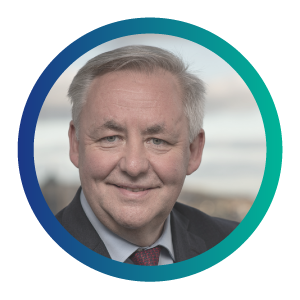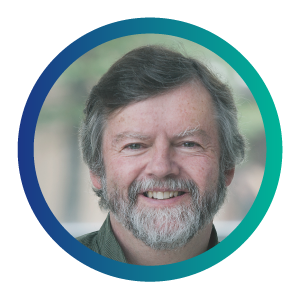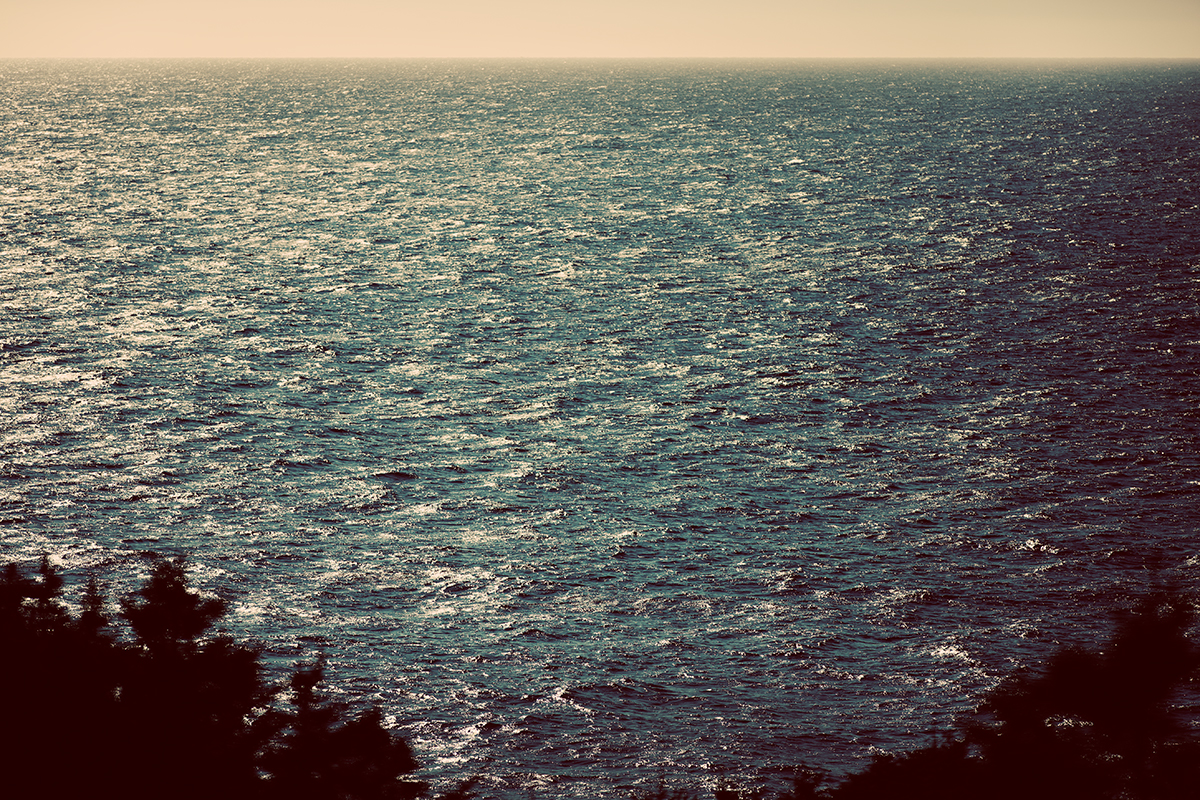watering opportunity
Marine Institute expands Holyrood Marine Base; Memorial grows as global oceans leader
watering opportunity
Marine Institute expands Holyrood Marine Base; Memorial grows as global oceans leader
watering opportunity
Marine Institute expands Holyrood Marine Base; Memorial grows
as global oceans leader
watering opportunity
Marine Institute expands Holyrood Marine Base; Memorial grows as global oceans leader
watering opportunity
Marine Institute expands Holyrood Marine Base; Memorial grows as global oceans leader
On the frontiers of both the Arctic and the North Atlantic, Newfoundland and Labrador is one of the richest ocean ecosystems on Earth.
From the bountiful fisheries that provided sustenance and sustained the economy for hundreds of years, to the rich offshore energy reserves that were first discovered 40 years ago and a burgeoning eco-tourism industry, the ocean has shaped the province of Newfoundland and Labrador, and with it, Memorial University.
More than 40 per cent of all research conducted at Memorial is ocean-related, while fully two-thirds of the Faculty of Science’s research is focused on the ocean. And, the one-of-a-kind Marine Institute is one of the most respected centres of marine learning and applied research in the world, with nearly 100 per cent of its activities focused on the oceans.
Memorial’s Marine Institute is expanding and cementing that reputation for excellence through the expansion of the Holyrood Marine Base, a collaborative hub for testing and refining new ocean technologies in harsh environments and educating the next generation of students, researchers and business people.
‘Portal to the sea’
“The economic future of this province lies in the ocean,” said Glenn Blackwood, Memorial’s vice-president for the Marine Institute.

Glenn Blackwood
“The Marine Institute is Canada’s leading maritime, ocean technology and fisheries institute and the Holyrood Marine Base gives us the platform on the edge of the cold, Arctic-like ocean, which will be critical to our students, our researchers and our industry partners. The Holyrood Marine Base is the portal to the sea for everyone engaged in ocean technology, research, development and management.”
Established in 2010, the Holyrood Marine Base houses the Marine Institute’s Centre for Applied Ocean Technology, the Offshore Safety and Survival Centre and the Marine Services department, which operates training and research vessels.
“This new ocean innovation hub will provide an exceptional environment for ideas and unique technology to be put to the test.”
Glenn Blackwood
In 2017 a marginal wharf and breakwater were constructed and evacuation systems were installed for ocean safety and survival education, training and research.
It also includes an adjacent subsea water lot to support teaching and learning, research and development and testing of next-generation ocean technology, such as remotely operated vehicles and autonomous underwater vehicles.
In April 2019 the next phase of the Holyrood Marine Base expansion was announced, including a new multi-purpose building to provide technical workspace, dry laboratories, classrooms and offices that will enable collaboration among researchers, students and ocean technology partners.

An artist’s representation of the Holyrood Marine Base expansion.
It also includes an adjacent subsea water lot to support research, development and testing of next-generation ocean technology and evaluation positioning systems for remotely operated vehicles and autonomous underwater vehicles.
“Our community is proud to have worked with Memorial’s Marine Institute to establish this marine base,” said Gary Goobie, mayor of Holyrood, at the initial opening of the base. “The presence of this base will strengthen and diversify our local economy and put the Town of Holyrood on the map for training and applied research in Newfoundland and Labrador's growing ocean technology sector.”
The total project budget for the new marine base infrastructure, equipment and technology is $23 million, with support coming from the Government of Canada through the Atlantic Canada Opportunities Agency and the Province of Newfoundland and Labrador through the departments of Tourism, Culture, Industry and Innovation and Natural Resources.
As well, a portion of the provincial investment—$1 million from Natural Resources’ Innovation and Business Development Fund—will enable the Marine Institute to acquire two specialized underwater vehicles for the base. A research-class electric remotely operated vehicle and an autonomous survey vehicle will support innovation, new offshore business opportunities and the Marine Institute’s education programs in ocean technology.
Vice-president Blackwood calls the investment “critical” to the realization of the Marine Institute’s vision.
“Holyrood will advance our ocean technology leadership by showcasing our resourcefulness, innovation, collaboration and a community-based approach,” he said. “Our province, students, researchers and industry partners will benefit from this new ocean innovation hub, which will provide an exceptional environment for ideas and unique technology to be put to the test.”
Supporting research
Shreya Nemani is a master of science student in geography who is also a part of the Marine Institute’s School of Ocean Technology.

Shreya Nemani
Ms. Nemani’s research involves habitat mapping of selected coastal sites in Placentia Bay to develop baseline characteristics for these areas. Her project makes use of a wide range of ocean technologies to collect data, including multi-beam echosounders, conductivity temperature and depth (CTD) casts, sound velocity profilers and, most recently, a custom-built drop camera system used for direct observation.
“I was drawn to all the diverse work that is being done here and the accessibility to world-renowned facilities used to facilitate ocean research.”
Shreya Nemani
While her research focuses on Placentia Bay, Ms. Nemani used the Holyrood Marine Base to ensure her equipment was working as intended and to troubleshoot issues before going into the field.
“We had a few issues pop up, mainly related to our cable and video transmission, and so we returned to Holyrood multiple times before our scheduled fieldwork,” she said, noting how beneficial it was to be able to prepare for fieldwork at sea.
Ms. Nemani’s research is applicable in a variety of areas that require evidence-based decision-making, including marine spatial planning, impact assessments and conservation. In her search for post-undergraduate options that would allow her to contribute to research in the ocean sector, she came across the Marine Institute.
“I was drawn to all the diverse work that is being done here and the accessibility to world-renowned facilities used to facilitate ocean research,” Ms. Nemani said. “Both my supervisors, Dr. Katleen Robert and Dr. Rodolphe Devillers, are incredible researchers in the field of ocean mapping and I am happy to be a member of their labs.”
Dr. Robert is the Canada Research Chair in Ocean Mapping at the Marine Institute. Her research focuses on seafloor and habitat mapping and aims to improve our understanding of species-environment relationships.

Dr. Katleen Robert
“The ocean contributes significantly to Canada's economy, yet less than 10 per cent has been adequately mapped and the spatial distribution of most species is not well understood,” Dr. Robert explained. “In the 4D OCEANS Lab, we create high-resolution maps that can provide quantitative insights to help decision-makers in the areas of resource location, infrastructure condition, geological hazards and effectiveness of conservation activities.”
Dr. Robert says that ocean mapping is inherently multidisciplinary and that her lab is seeking students from a variety of disciplines.
Transcending boundaries
The multidisciplinary nature of ocean research is something that Dr. Paul Snelgrove, research professor in the Faculty of Science, calls “essential.”

Dr. Paul Snelgrove
“The Northwest Atlantic is a major oceanographic hotspot for ocean productivity and global climate, and is also the heart of the Atlantic Canadian economy,” he said. “The oceans have sustained Atlantic Canada since the late 15th century but sustainability depends on excellent science that transcends boundaries.”
Dr. Snelgrove is also the associate scientific director of the Ocean Frontier Institute (OFI), a partnership among Memorial, Dalhousie University and the University of Prince Edward Island. The institute launched in 2016 with an unprecedented $220 million in funding from the Canada First Research Excellence Fund and various private and public-sector organizations.
“OFI is meant to facilitate some of the world’s most ambitious research aimed at unlocking the secrets of the North Atlantic. That cannot be done without diverse teams and audacious goals.”
Dr. Paul Snelgrove
“Traditionally, universities in Canada compete with each other, and I think that’s been particularly evident in Atlantic Canada,” he said, noting that larger universities, like the University of British Columbia and the University of Toronto, are much more competitive in national competitions because they have a critical mass within their individual universities.
“In Atlantic Canada, it can be challenging to compete for major investments like the Canada First Research Excellence Fund. Through collaboration, we build on each other’s institutional strengths and submit really compelling, competitive applications to access transformative funding.”
Dr. Snelgrove also says that the collaborative elements of OFI are meant to transcend both the boundaries between institutions and within them.
“OFI is meant to facilitate some of the world’s most ambitious research aimed at unlocking the secrets of the North Atlantic. That cannot be done without diverse teams and audacious goals.”

OFI aims to address ocean challenges that are too large and complex for one institution, one research sector or one country to tackle alone. | Photo: David Howells
Interdisciplinary research, multifaceted solutions
A significant portion of phase one OFI funding was used to support 16 large research projects that spanned atmosphere-ocean interactions, marine safety, ocean data and technology, shifting ecosystems, sustainable aquaculture and sustainable fisheries.
A focus in every funded project was ensuring truly interdisciplinary research—researchers from natural and social science disciplines not just working next to each other but collaborating on complex problems that require multifaceted solutions.
For example, one project led by Dr. Snelgrove and Dr. Megan Bailey, Canada Research Chair in Integrated Ocean and Coastal Governance at Dalhousie University, is developing gauges of ecosystem health in coastal Labrador.
The Nunatsiavut Government and Fisheries and Oceans Canada (DFO) are partners on the project, which supports Nunatsiavut’s Imappivut Marine Plan to manage and protect Labrador Inuit interests in the coastal and marine areas of Labrador.
“Imappivut means ‘our ocean’ in Inuktitut and it’s an agreement to co-develop management strategies for coastal Labrador with Indigenous groups at the table as full partners,” said Dr. Snelgrove. “The idea is that both Nunatsiavut and DFO will work together to identify activities to both increase the productivity that one can extract from the Labrador Sea, but also protect and ensure the sustainability of those resources for the long term.”
The project’s goal is to provide guidance for regional management strategies and conservation efforts. The research team is taking a holistic perspective—from microbes to fish to plants to humans—to identify what measures can be used to evaluate the overall functioning of an ecosystem, given climate change, fishing and other pressures.
According to Dr. Snelgrove, once you start talking about ocean policy, you “really must” bring together social and natural sciences—one can’t function without the other. This has considerable benefits for students, who emerge from the projects able to straddle the natural and social sciences in a way that will serve them well in today’s job market.
OFI funding has supported more than 25 post-doctoral fellows, 20 doctoral and 45 master’s students at Memorial. With the second phase of funding soon to be awarded, even more students will benefit.
Partnering for success
Phase two projects will include engagement with Indigenous communities, Canada’s Ocean Supercluster and international partners.
While making these linkages may not be easy, Dr. Snelgrove believes it’s a must.
“Industry partnership and Indigenous engagement are priority areas for Memorial and the OFI. Both priorities depend quite heavily on relationships, which take time to build, but I believe we are making good headway.”
The Ocean Supercluster is an industry-led collaboration that is meant to build a shared competitive advantage, foster a critical mass of growth-oriented organizations and strengthen connections between private, public and academic institutions.
“Memorial’s talented faculty, staff and students will make significant contributions to the Ocean Supercluster, while fulfilling our special obligation to the people and economy of our province.”
President Kachanoski
“The fact is, Canada is underperforming when it comes to our ocean economy—only 1.5 per cent of our national economy stems from ocean-related activities, compared to a global average of more than double that,” said Vice-president Blackwood, who was recently named to the Ocean Supercluster board of directors. “The Marine Institute, and Memorial more broadly, is home to world-class researchers, energetic students and state-of-the-art facilities. We are ready to collaborate with industry to help realize the full potential of the Canadian ocean economy.”
President Gary Kachanoski welcomed the Ocean Supercluster in a public statement shortly after the initiative was announced, saying it had great potential to energize the Canadian economy and become an engine for growth.
“Memorial is well-positioned to contribute to the success of the Ocean Supercluster and the sustainable future of the Atlantic Canada region,” he said. “As co-ordinated by our Cold Ocean and Arctic, Science, Technology and Society (COASTS) initiative, this university is an international leader when it comes to ocean innovation.
“With well-established industry partnerships, and through the remarkable strengths of our alumni working in the oceans industries, Memorial’s talented faculty, staff and students will make significant contributions to the Ocean Supercluster, while fulfilling our special obligation to the people and economy of our province.”
MEMORIAL UNIVERSITY | Newfoundland and Labrador's University | OFFICE of THE PRESIDENT | president@mun.ca | 709 864 8212
MEMORIAL UNIVERSITY OF NEWFOUNDLAND | Newfoundland and Labrador's University | OFFICE of THE PRESIDENT | president@mun.ca | 709 864 8212
MEMORIAL UNIVERSITY OF NEWFOUNDLAND | Newfoundland and Labrador's University | OFFICE of THE PRESIDENT | president@mun.ca | 709 864 8212
MEMORIAL UNIVERSITY OF NEWFOUNDLAND | Newfoundland and Labrador's University | OFFICE of THE PRESIDENT | president@mun.ca | 709 864 8212
OFFICE of THE PRESIDENT | president@mun.ca | 709 864 8212 |
MEMORIAL UNIVERSITY of NEWFOUNDLAND
